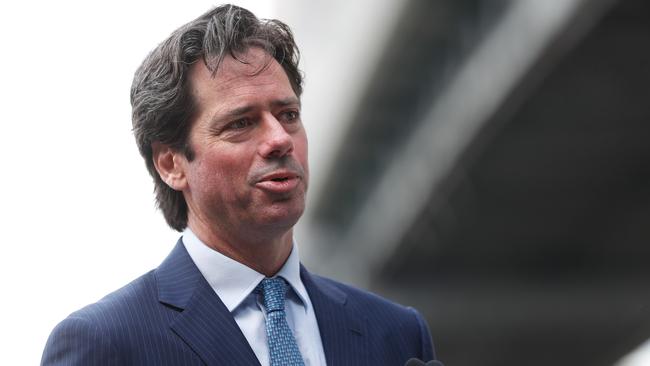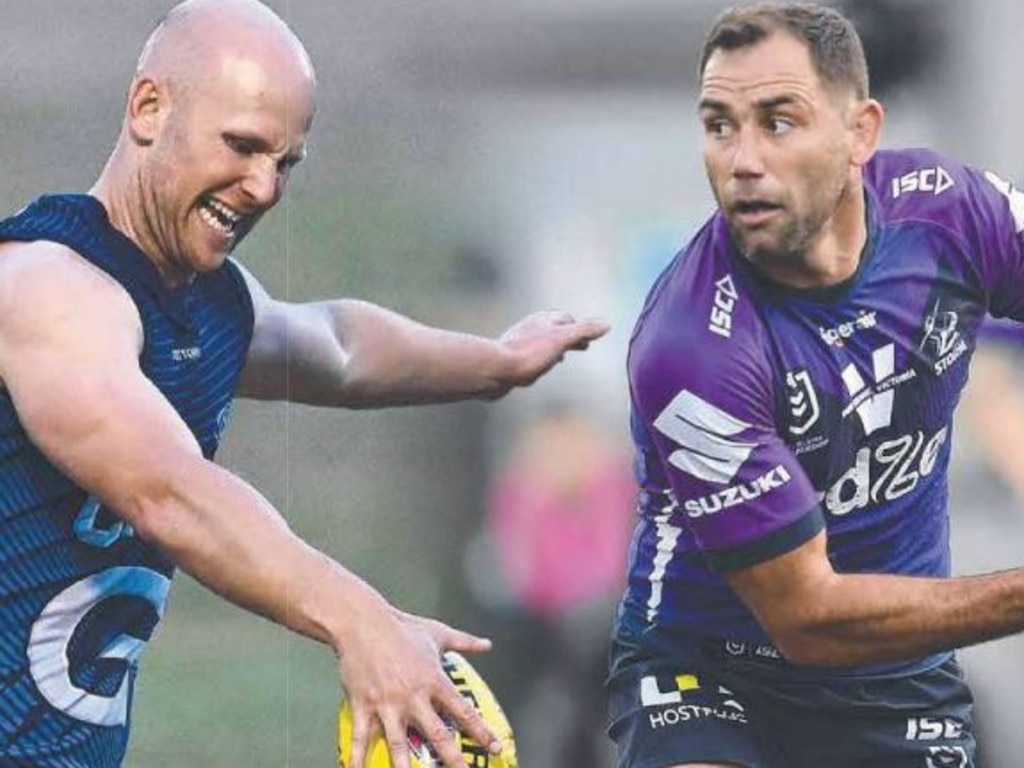Footy’s here to stay in Queensland, says Gillon McLachlan
AFL chief executive Gillon McLachlan says the evidence shows the competition has made massive inroads in Queensland.

Gillon McLachlan is confident the AFL has strengthened its foothold in Queensland as the result of an extraordinary season that concludes on Saturday night at The Gabba.
The AFL chief executive, who has been based on the Gold Coast for the past two months, said it was clear Australian rules was thriving in the Sunshine State.
Although Queensland remains a rugby league and rugby dominated territory, the AFL supremo believes Australian football can now be considered a power in the state.
“I am very bullish about what this means for Queensland. We are not saying we are the No 1 sport. But we are certainly right in the conversation, I think,” he told The Weekend Australian.
“The ratings in the home and away season were up 35 per cent, the finals were up 20 per cent and I think we had the highest rating finals series in Queensland in history.
“The participation on the ground, the growth of women’s football, the number of clubs, particularly junior clubs, I think junior participation is at a record high this year, despite COVID. We are seeing (the growth) clearly, anecdotally, and of more relevance, we see it in the numbers.
“The only reason I say anecdotal is that you asked, ‘Do you feel it in the streets?’. I walk around here and you feel like you are not quite in Melbourne, but you are getting close.
“People want to talk football all the time. But much more relevant is the numbers. The ratings. The participation. Even the crowds.”
The investment the AFL has made in relation to women’s football was a significant factor in facilitating the co-operation between the code and Queensland government earlier this year to enable the relocation of Victorian clubs to occur and the season to progress.
Earlier in October, McLachlan attended a match in Taringa, in suburban Brisbane, to celebrate the achievement of Keith “Happy” Wallis, who coached his 1000th game at the Wests Junior Australian Football Club.
“When you go to an oval to celebrate a guy’s 1000th game as coach and it feels like a football club anywhere in Victoria or South Australia or Western Australia … I love that and I am proud of that footy club,” he said.

“They have 400 kids. It is bigger than my footy club in Melbourne. And then you go to The Gabba and, right now, it is like rolling into the MCG in the sense that everyone is there and it is noisy and it is committed and it is passionate, so it just feels like right now, we have this framework from the grassroots to the elite that has gone to the next step.
“There is nothing forced or contrived about it. We are not having to market or push or sell all of those things. It is totally natural to go to a footy club and celebrate a guy’s 1000 games, like it is to go to the football. That is how it is feeling to me up here.”
The challenge is to consolidate on the progress made in a year where the majority of the AFL season has been held in Queensland, capped by the grand final between Richmond and Geelong at The Gabba.
Collingwood president Eddie McGuire said last month it was important the AFL avoided the “Olympic effect”.
By that he meant the league needed to ensure it made the most of the investment it had made over the past decade, but particularly this year, when the competition returns to some normality in either 2021 or 2022.
Both Brisbane Lions chairman Andrew Wellington and Gold Coast Suns chief executive Mark Evans have expressed their optimism about the league’s development in Queensland.
McLachlan believes this season has helped to fast-track the substantial investment the AFL has made in the state.
“I think having the clubs on the ground and the football we have had here, there has been this accelerated dismount to 25 years of investment,” he said.
“So we have been on the ground for the success of the Lions in the late 1990s through and there has been growth, and then the Suns obviously over the last 10 years ... We will continue to invest. But the framework feels set. In football terms, we now have a fully formed 18. Now we have to put the muscle on.”








To join the conversation, please log in. Don't have an account? Register
Join the conversation, you are commenting as Logout